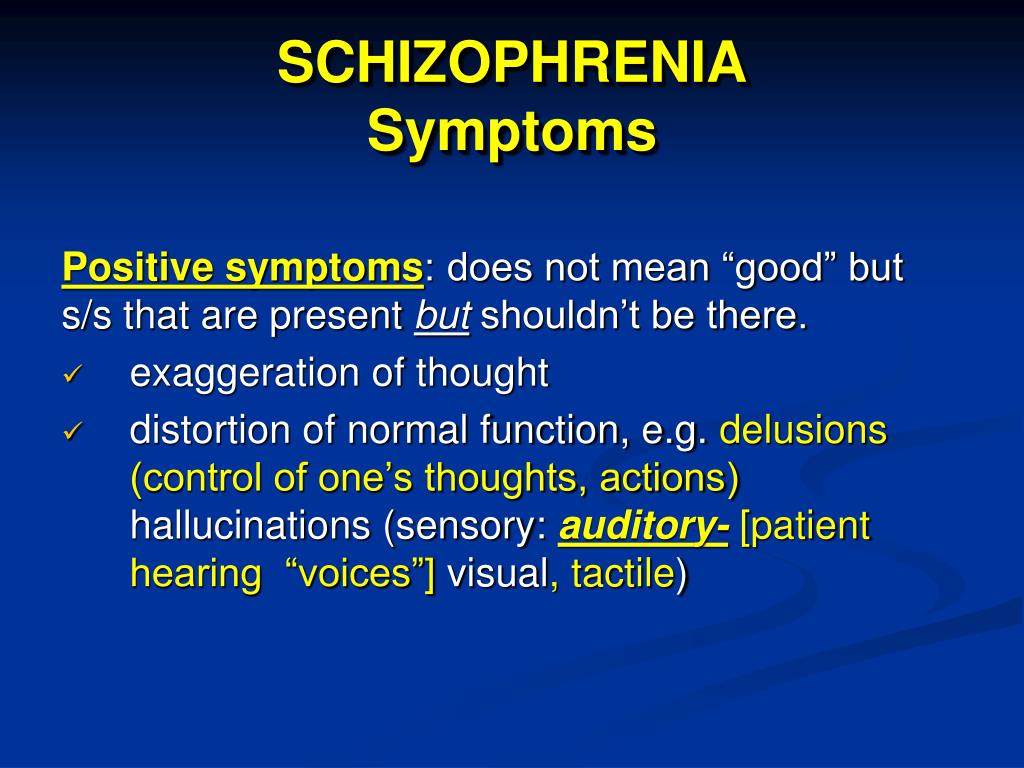
Hallucinations are very real to the person experiencing them, even though people around them cannot hear the voices or experience the sensations. It can involve any of the senses, but the most common is hearing voices. Positive symptoms of schizophrenia HallucinationsĪ hallucination is when a person experiences a sensation but there is nothing or nobody there to account for it. Read more information about how schizophrenia is diagnosed. If you are experiencing symptoms of schizophrenia, see your GP as soon as possible. The earlier schizophrenia is treated, the more successful the outcome tends to be. People often have episodes of schizophrenia, during which their symptoms are particularly severe, followed by periods where they experience few or no positive symptoms. This is because the first symptoms often develop during adolescence and changes can be mistaken for an adolescent "phase". The first signs of schizophrenia, such as becoming socially withdrawn and unresponsive or experiencing changes in sleeping patterns, can be hard to identify.

Read more about diagnosing schizophrenia. It is important that schizophrenia is diagnosed as early as possible, as the chances of recovery improve the earlier it is treated. It is most often diagnosed after an assessment by a mental health care professional, such as a psychiatrist. There is no single test for schizophrenia. Schizophrenia is most often diagnosed between the ages of 15 and 35. About 1 in 100 people will experience schizophrenia in their lifetime, with many continuing to lead normal lives. Schizophrenia is one of the most common serious mental health conditions.

Read more about the causes of schizophrenia. It is thought certain things make you more vulnerable to developing schizophrenia, and certain situations can trigger the condition. However, most experts believe the condition is caused by a combination of genetic and environmental factors. The exact cause of schizophrenia is unknown. Read more about the symptoms of schizophrenia. muddled thoughts based on hallucinations or delusionsĭoctors often describe schizophrenia as a psychotic illness. This means sometimes a person may not be able to distinguish their own thoughts and ideas from reality.delusions – unusual beliefs not based on reality that often contradict the evidence.hallucinations – hearing or seeing things that do not exist.Schizophrenia is a long-term mental health condition that causes a range of different psychological symptoms, including:


 0 kommentar(er)
0 kommentar(er)
